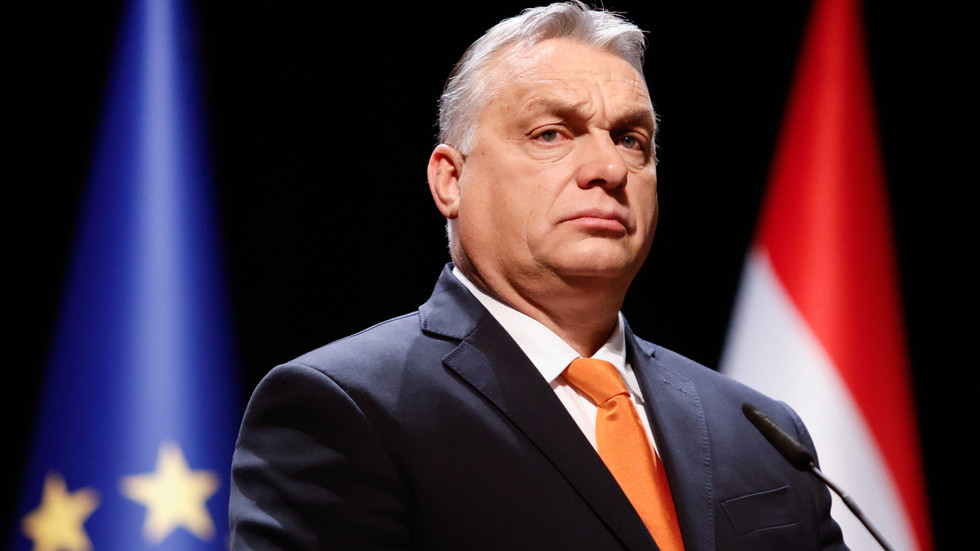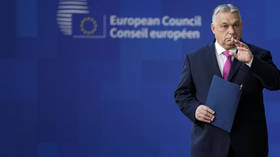
Hungarian Prime Minister Viktor Orban has warned that the bloc’s economy would be killed if Kiev were allowed to join

Hungarian Prime Minister Viktor Orban © Getty Images / Luka Dakskobler; SOPA Images; LightRocket
The European Union must carefully assess all the possible risks of granting membership to Ukraine, especially given that the country is still “at war,” Hungarian Prime Minister Viktor Orban said in an interview with TV2 on Wednesday.
His comments come after the EU officially announced that it would launch accession negotiations with Kiev last week, despite concerns previously raised by several bloc members such as Hungary and Slovakia, who have argued that neither Kiev nor Brussels were yet ready for such a step.
According to Orban, Kiev’s admission to the EU would cost the bloc somewhere between €150 billion and €190 billion ($164 billion and $208 billion), and would mean that “all the aid that was given to the countries of Central Europe, including Hungary, would be transferred to [Ukraine].”
The Hungarian leader also described the bloc’s intention to include a country that is currently in the middle of a military conflict as “absurd” and “unreasonable.” He warned that, if Ukraine were to join the union, then the EU economy would be “killed.”
Orban said everything must be calculated with “engineering precision” regarding Kiev’s possible accession, and that everything must be done with the support of the public, which must be told of all the risks of such moves.
“We still live in a democracy,” Orban stated.
While Orban did not block the EU’s decision to start accession talks with Ukraine at last week’s summit, he has opposed a €50 billion ($54 billion) four-year financial aid package for Ukraine.

Read more
Orban’s divergent stance on Ukraine, compared to the bloc’s official position, has put him at odds with several EU member states that have accused him of acting as “Putin’s puppet.” Some, according to the Financial Times, are even considering activating Article 7 of the EU Treaty, which could potentially strip Hungary of certain voting rights for “breaching core EU principles.”
Kiev initially submitted its EU bid back in 2022 following the launch of Russia’s military offensive against the country. That same year, Ukraine officially received candidate status.
However, despite unanimous support for Kiev’s eventual membership, a number of EU states have objected to any sort of fast tracking of the accession process, arguing that there were still a number of major concerns regarding the country’s track record on corruption. They also referred to the fact that Ukraine is in the middle of an armed conflict, and claimed its large farming industry would disrupt the bloc’s agriculture market.




